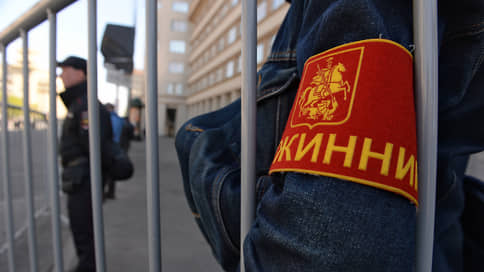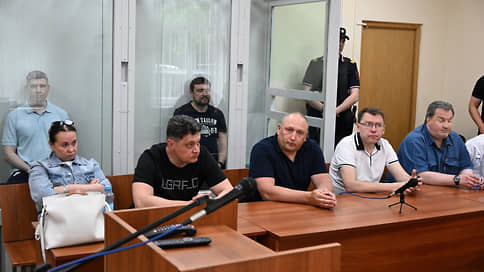The Armed Forces will figure out whether it is legitimate to remove the land for the State Neighbor and transfer it to a private enterprise

The dispute about what to consider the seizure of a site for state -owners will consider the Supreme Court of the Russian Federation (Sun). The Government of the Ryazan region seized the land from the entrepreneur-farmer in public interests, but in the end it was transferred to a private plant. The arbitration courts recognized the order of the authorities legitimate, deciding that the activity of the plant is in state interests. But the farmer that lost the earth insists that the interests of the plant are one thing, and the State Superior is somewhat different. Lawyers say that the decision of the economy college of the Armed Forces on this issue is important for many regions, including Moscow.
The Armed Forces will figure out whether it is legitimate to seize the land for the State Neighbor and transfer it for the extraction of minerals to a private enterprise. In August 2022, the Serebryansky Cement Plant turned to the government of the Ryazan region and asked to seize the agricultural agricultural land in the village of Oktyabrsky Mikhailovsky district from the farmer-IP of Natalia, to conduct the development of clay and limestone deposits on them. The authorities supported the enterprise, divided the original land plot into several and seized 90.2 hectares from the entrepreneur for state -owners. IP has two sections with a total area of about 15 hectares.
Mrs. Porotikova challenged the order of the regional government on the seizure of lands, insisting that the ultimate goal was not the satisfaction of the State Assembly, as the law demanded. The plots that remains after the section do not comply with the norms of land law, in particular, due to the lack of access to public lands, they cannot be used according to agricultural recognition, and one of the objects is even less than the minimum acceptable size, the plaintiff said with reference to the conclusion of the cadastral engineer.
Severe cement
The Arbitration Court of the Ryazan Region rejected the claim of the individual entrepreneur, recognizing the seizure by legal. The court indicated the presence of a license for the use of subsoil, and state -owned, follows from the decision, consisted in the “development of industrial materials industry” and the importance of cement raw materials for the Russian economy. In support of the court, the courts of the regional authorities with references to the strategy for the socio-economic development of the region until 2030, the 2014 state program for the use of natural resources and the federal development strategy for the mineral and raw base of the Russian Federation until 2035. IP’s petition for the appointment of a land management examination to verify the availability of access to the remaining land and the possibility of its use for agricultural activity, the court rejected the court. The appeal and the district cassation supported this decision.
Natalya Porotikova filed a complaint with the Armed Forces, referring, firstly, to procedural violations, including the deviation of her application for examination. In addition, the subsoil user in itself, in her opinion, does not allow us to argue that « the plant’s activity is aimed at satisfying public interests. » The regional government, the complaint says, seized the plots not for the State Assembly, but in the interests of the plant, which already has “significant undeveloped plots of the subsoil”, and some of his lands were leased “Rusagro” to carry out agricultural activities.
The Armed Forces recognized the arguments of the individual entrepreneur who deserves attention and referred the case to the economy of the college, the meeting was scheduled for April 8.
Natalia Porotkova could not get comments. The Government of the Ryazan Region on Thursday did not respond to the request of Kommersant. The press service of JSC Cemos, which includes the Serebryansk plant, reported that the disputed sites are still belonging to the plaintiff, but they are interconnected with the lands of the plant “geologically, technologically and economically” and will be needed to develop the field. The company argues that “if in the near future not starting activities on the opening of new areas”, the work of the plant “will have to be discontinued in connection with the exhaustion of raw materials available for production”, emphasizing that this is one of the largest taxpayers of the region. Tsemros specified that they leased some of the plots for Rusagro lease until the fall of 2022, as it was land for agricultural production and they had to be used for their intended purpose, but now they were transferred to industry lands.
Public interest
Lawyers note that disputes about the seizure by the authorities of land from private owners are often found in the practice of various regions. In 2015, the Armed Forces explained that the needs of public education should be understood as state-owned education, the satisfaction of which is aimed at achieving the interests of society, says Armen Serobyan, managing partner of Legal Eagles. At the same time, the authorities need to prove that the needs of the state or region is “impossible to carry out without removing property owned by private property,” adds Elena Luzanova, a lawyer for the K&P Group dispute resolution, citing the Armed Forces of the Armed Forces of 2018.
A similar position, says the leading lawyer of Enforce Law Company Vladislav Strelkov, is fixed in the 2016 Armed Forces review review, according to which “seizure cannot be carried out only or mainly in order to obtain the benefits of other private entities, the activities of which only indirectly serves the interests of society.” Thus, “the extraction of minerals can be considered state -owned only if there is objective confirmation that the activity is conducted in the interests of the state, and not a private business, and solely if it is impossible to implement a project,” says Roman Lyapunov, senior partner of the Lyapunov, Terekhin and partners.
At the same time, Mr. Strelkov admits, universal criteria for assessing the presence or absence of state -owners in the seizure of plots, including for mining, are now absent. In this regard, the courts sometimes try to evaluate which use of the Earth will be more profitable for the state and society. For example, they compare tax and non-tax revenues to the budgets from the activities of different land users, take into account the number of existing and created jobs, the development of engineering and transport infrastructure, the presence or absence of environmental damage and other factors.
Meanwhile, in the dispute with IP Natalya Porotikova, neither the administration nor lower courts brought arguments about “what specific socially useful goal can be achieved” thanks to the seizure, Mr. Serobyan points out. He believes that the Armed Forces will indicate the need for a more thorough study of evidence and conducting a land management examination. To resolve this dispute, Elena Luzanova believes, it is necessary to find out, “whether it is possible to realize public interests without removing specific sites, observe the balance of public interests and private property rights.”
Lawyers expect the Armed Forces to formulate clear criteria for what exactly relates to state -owneds and how these goals need to be confirmed. Then this “significantly strengthen the protection of the rights of private owners,” says Roman Lyapunov, because “authorities will have to not only refer to state programs and licenses of subsoil users, but prove the validity of each case of seizure.”





:format(webp)/s3/static.nrc.nl/wp-content/uploads/2025/05/28143839/web-3105ZAT_LEV_giro_algemeen_2.jpg)

